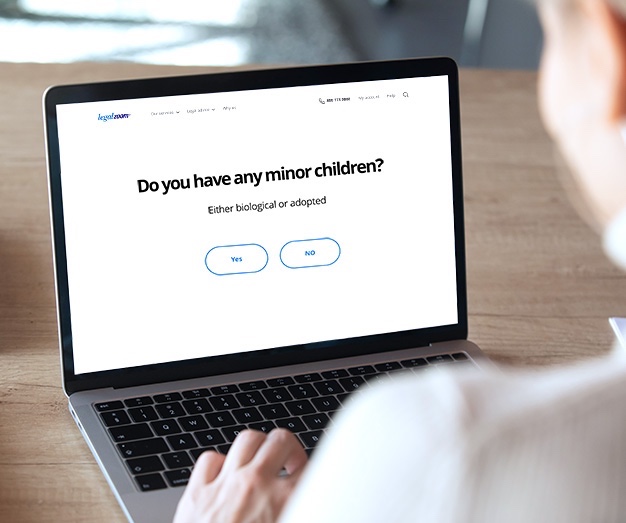Compare estate
planning products
Click on the products you want to compare, or scroll down for the complete list.
- Includes a last will or living trust, living will, and financial power of attorney. Plus you can ask real attorneys in our network your estate planning questions and request document review
- More efficient and saves money
- Get peace of mind with attorney access
- Revise whenever you need
- Costs more than buying an individual doc—but you save money overall and get a comprehensive plan
- Specify your last wishes and who carries them out
- Decide who raises your children
- Decide who gets your assets
- Ease your loved ones' stress by making arrangements in advance
- Prevent loved ones from arguing over who gets what
- Easy to create—and revise
- Your loved ones may have to deal with probate court and its delays and expenses
- Specify your last wishes and who carries them out
- Decide who raises your children
- Decide who gets your assets by transferring them into a trust while you're alive
- Ease your loved ones' stress by making arrangements in advance
- Prevent loved ones from arguing over who gets what
- Help your loved ones avoid court and its delays and expenses
- Takes more effort and time to create than a last will
- Decide now what you want to do about life support and if you'll donate your organs
- Appoint someone to manage your healthcare
- Ease your loved ones' stress by making arrangements in advance
- Prevent loved ones from arguing over your healthcare
- Avoid medical treatments you don't want
- Healthcare providers won't know your wishes unless you share with them
- Appoint someone to handle your financial and legal affairs if you can't for any reason
- Ease your loved ones' stress by making arrangements in advance
- Avoid court and its delays and expenses
- Protect your assets
- Whoever you appoint will have control—make sure you trust them
It's easy to start your estate plan
-
Answer a series of questions
After you pick your products, you'll answer some simple questions to get your documents filled out right.
-
We'll finalize your paperwork
We'll use your answers to create your document, which you can review in your account.
-
Review with attorney, or on your own
Follow our easy instructions to print and sign. Or have a lawyer do a final review with you over the phone.


Get the Estate Plan Bundle and save up to 37%
Save on multiple documents. Get a living will, financial power of attorney, and either a last will or living trust—plus consultations with independent attorneys—for one low price.
Get answers to common questions Get answers to common questions
If you pass away without a last will, this is known as dying "intestate". When this happens, the state decides what happens to your property and your dependent children. The laws governing intestacy vary greatly from state to state.
Probate is the legal process used by the court to decide how an estate will be divided. In general, a court will follow the directions in a last will, unless the will is successfully contested. The length of time and the cost to probate an estate depend on the value of the estate and where it is located. In certain situations, it may be prudent to set up a living trust to avoid the probate process.
A living trust is an arrangement made (while you are still alive) to transfer your property into a trust for the benefit of yourself and others. Since you are the trust's first trustee, you maintain ownership and control, but upon your death, the person you choose as successor trustee steps in to transfer the property according to your wishes, without needing to go through probate court.
Though they sound similar, a last will and a living will are two very different things that serve different needs. A last will details what you want to happen to your property after your death. A living will, sometimes called an advance directive, dictates the medical care you wish to receive under certain circumstances if you become incapacitated or otherwise unable to communicate your wishes.
The laws regarding what happens to your property after your death can be very complex and vary widely from state to state. In Texas, the probate process is relatively simple, and a last will is be sufficient for many people's needs. But in California or Florida, the probate process can be expensive and time consuming, which makes the living trust an appealing option, depending upon the size of your estate.

Need help?
Call us at (866) 679-1568
Mon to Fri: 7am - 9pm CST
Weekends: 9am - 6pm CST
Our agents are based in the US
